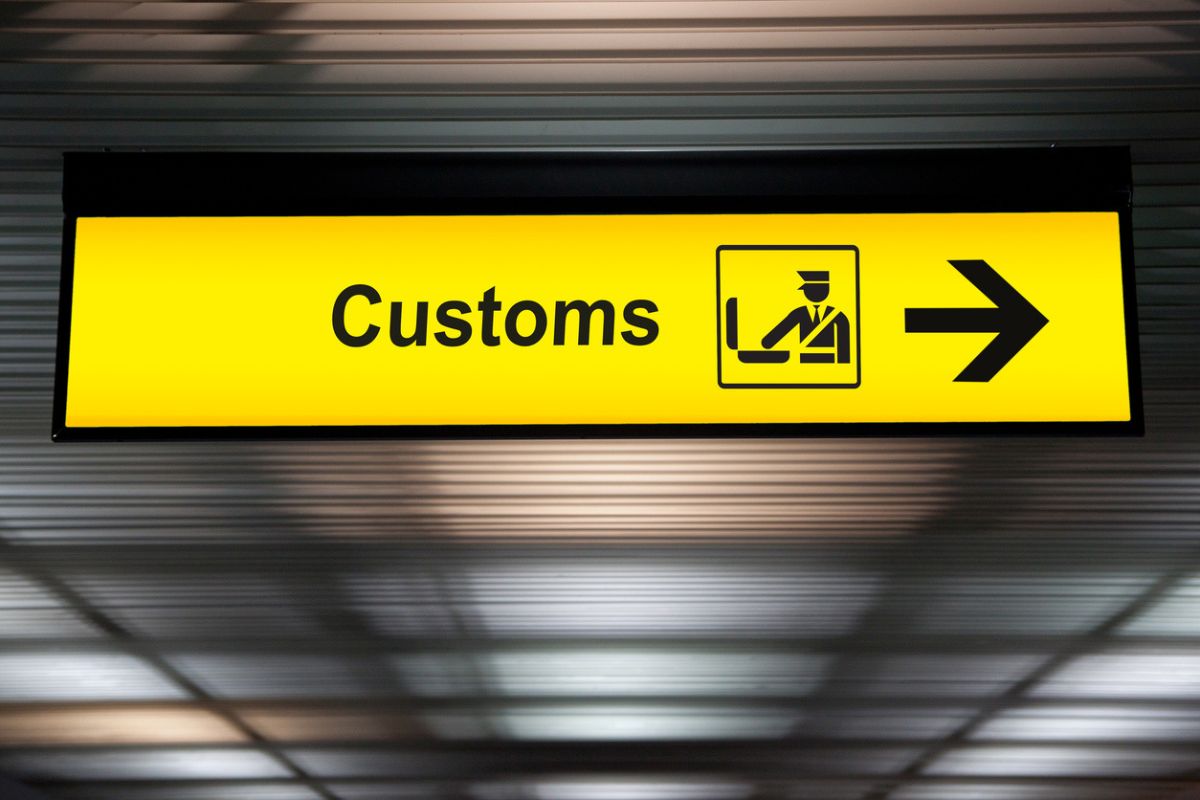Europe is a dream destination for millions of travellers, but before packing your bags, it’s important to understand EU customs rules. The European Union (EU) has strict regulations on what you can and cannot bring, especially if you’re arriving from outside the EU.
Notably, the EU’s customs rules on food, alcohol, tobacco, cash, and even plants are stricter than many travellers realise. Ignoring these rules can lead to fines, confiscation, or even legal trouble.
Here’s a clear breakdown of custom rules that you need to know before packing.
EU Customs Rules for Travellers Entering from Non-EU Countries
If you are flying into Europe from outside the EU, customs officers closely examine food items, alcohol, tobacco, and valuable goods. Some of these are completely banned, while others can only be brought in limited amounts.
Let’s have a look at what is allowed and what is restricted.
- Banned items: Meat, milk, and dairy products are not allowed at all.
- Restricted items: Small amounts of fruit, vegetables, eggs, honey, certain fish products, plants, and animals may be permitted, but some require official health certificates or permits.
Think of it this way: anything that could carry pests, diseases, or threaten biodiversity is tightly controlled.
EU Customs Rules on Alcohol and Tobacco Allowances
Non-EU travellers entering from outside the EU are allowed to carry some duty-free goods, but quantities are capped:
1. Alcohol Duty-Free Limits in the EU
Travellers from non-EU countries can bring up to 4 litres of still wine, 16 litres of beer, and either 1 litre of strong spirits or 2 litres of fortified or sparkling wine.
- 4 litres of still wine
- 16 litres of beer
- 1 litre of spirits (over 22% alcohol) or
- 2 litres of fortified/sparkling wine
2. Tobacco Allowances for Non-EU Travellers
Tobacco limits vary by country, but travellers are generally permitted to carry cigarettes, cigars, or loose tobacco for personal use. Always check the exact customs regulations of your arrival country before travelling.
3. Duty-Free Goods Value Limit
Goods up to €300 are duty-free for land travellers. If you arrive by air or sea, the limit rises to €430. Children under 15 often face a reduced €150 allowance.
4. Fuel Allowance for Motorists
Motorists can carry up to 10 litres of fuel in a portable container, in addition to their vehicle’s fuel tank capacity. This allowance is designed to cover personal travel needs, not resale.
This means that you can bring home some wine, perfume, or small electronics, but don’t expect to load up on high-value shopping sprees duty-free.
Declaring Cash at EU Borders
Carrying a lot of cash? Any traveller entering or leaving the EU with €10,000 or more must declare it to customs. This rule also covers the equivalent amount in other currencies, as well as certain gold or traveller’s cheques.
It is worth noting that failing to declare or making an inaccurate declaration can lead to heavy penalties and have your funds seized.
Travelling Within the EU
Travelling between two EU countries is comparatively easier because of the principle of free movement, but there are still some rules to keep in mind.
- Allowed for personal use: Meat, dairy, cut flowers, fruit, and vegetables grown within the EU are permitted, provided they are free from pests or diseases.
- Special limits: Baby milk powder, baby food, specific medical foods, and some pet feeds are restricted to personal-use quantities (under 10 kg).
Alcohol and Tobacco Limits
For personal use, EU guidelines allow:
- 800 cigarettes
- 1 kg of smoking tobacco
- 10 litres of spirits
- 20 litres of fortified wine
- 90 litres of wine
- 110 litres of beer
These limits are generous, but anything beyond could raise suspicion that items are intended for resale.
Carrying Cash Within the EU
Unlike at the EU’s external borders, there is no single EU-wide rule on declaring cash when travelling between member states. Each country may have its own reporting rules, so it is a good idea to check local customs requirements.
Consumer Rights Inside the EU
Who doesn’t love shopping while travelling? And the EU gives you more reasons to do so by offering solid consumer protection. If you buy faulty goods, digital content, or services in any EU country, you can get help from the European Consumer Centre in your home country.
It is worth noting that each country may have slightly different warranty rules, so it’s a good idea to check before making large purchases.
Quick Guide: What You Can’t Carry to the EU
To sum it up, here’s a simple checklist of items you should avoid packing when entering the EU from a non-EU country:
- Meat, milk, and dairy products.
- Protected plant or animal species without special permits.
- Counterfeit goods, pirated content, and endangered wildlife products.
- Weapons or explosives, unless authorised.
- Excessive quantities of alcohol, tobacco, or goods intended for commercial use.
Final Thoughts
Travelling into or within the EU is simple once you know the EU customs rules. These regulations exist to protect agriculture, wildlife, and public health. By respecting duty-free limits and declaring required items, you can cross borders smoothly and enjoy your trip without delays.
Follow and connect with us on Facebook, Twitter, LinkedIn, Instagram and Google News for the latest travel news and updates!
